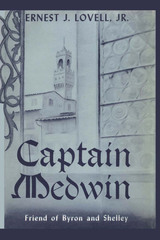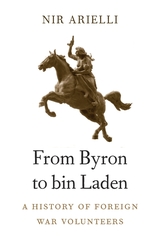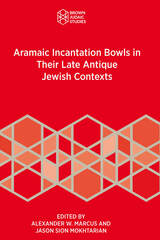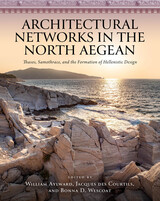

Here is the first biography of Thomas Medwin—literary adventurer, rascal, scholar, confidence man, successful fortune hunter, and bemused speculator on a grand scale in old Italian oil paintings. Poet, novelist, translator of Aeschylus, cousin and boyhood friend of the poet Shelley, he was a man of fiery temper, fierce hatreds, and enduring loves.
Although an intimate friend of Lord Byron, he was so dangerous (or disreputable) that his Lordship warned Teresa Guiccioli, his last mistress, not to be alone in Medwin's company. Later, Medwin introduced Byron's daughter to her future husband, Lord Lovelace, and so determined the poet's line of descent.
Friend of Washington Irving, gentleman of the old school, neglected Boswell of the nineteenth century, Medwin reported the conversations of Byron, Shelley, Trelawny, Hazlitt, Canova the sculptor, and others. His life and adventures light up little-known aspects of the nineteenth-century literary, military, social, and publishing world—in England, India, Italy, France, Switzerland, and Germany.
Medwin served as midwife to the words of a dead man—Lord Byron—who returned to laugh and sneer at the living from the Captain's pages. The Conversations of Lord Byron thus became the most controversial book of the day, going through a dozen editions, in six countries, and being translated into French, German, and Italian. It aroused the wrath, indignation, or enthusiastic interest of such individuals as Goethe, Lady Byron, Lady Caroline Lamb, the Countess Teresa Guiccioli, John Cam Hobhouse (later Lord Broughton), Sir Walter Scott, John Murray, and Washington Irving. Medwin, whose long and adventurous life extended from the rise and flowering of the Romantic Period to the mid-Victorian Age (which he regarded as a dreary decline from the great heights of his youth), was an influence of the first magnitude in determining the early public image of Byron and the reputation of Shelley.
This often amusing story, as engrossing as a novel, is drawn from all the available accounts, including many important sources never before published. In effect a new contribution to the biographical study of Byron and Shelley, it clarifies Medwin's relations not only with these two poets but also with many other important and interesting figures of the day.

What makes people fight and risk their lives for countries other than their own? Why did diverse individuals such as Lord Byron, George Orwell, Che Guevara, and Osama bin Laden all volunteer for ostensibly foreign causes? Nir Arielli helps us understand this perplexing phenomenon with a wide-ranging history of foreign-war volunteers, from the wars of the French Revolution to the civil war in Syria.
Challenging narrow contemporary interpretations of foreign fighters as a security problem, Arielli opens up a broad range of questions about individuals’ motivations and their political and social context, exploring such matters as ideology, gender, international law, military significance, and the memory of war. He shows that even though volunteers have fought for very different causes, they share a number of characteristics. Often driven by a personal search for meaning, they tend to superimpose their own beliefs and perceptions on the wars they join. They also serve to internationalize conflicts not just by being present at the front but by making wars abroad matter back at home. Arielli suggests an innovative way of distinguishing among different types of foreign volunteers, examines the mixed reputation they acquire, and provides the first in-depth comparative analysis of the military roles that foreigners have played in several conflicts.
Merging social, cultural, military, and diplomatic history, From Byron to bin Laden is the most comprehensive account yet of a vital, enduring, but rarely explored feature of warfare past and present.
READERS
Browse our collection.
PUBLISHERS
See BiblioVault's publisher services.
STUDENT SERVICES
Files for college accessibility offices.
UChicago Accessibility Resources
home | accessibility | search | about | contact us
BiblioVault ® 2001 - 2025
The University of Chicago Press









